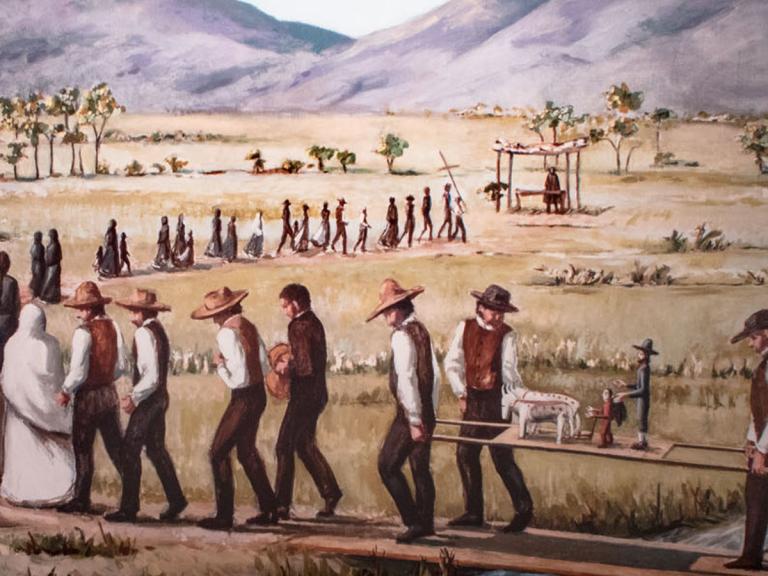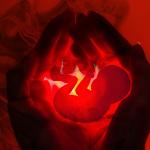
A new exhibit at the New York Historical Society is exploring the impact that faith had on the United States’ westward expansion during the 19th century, while also detailing how that expansion affected America’s religious expression. Called Acts of Faith: Religion and the American West, the exhibit covers a variety of religious movements as America pursued its “Manifest Destiney” westward. Rather than focusing on the familiar staples of westward expansion- cowboys, gold rushes, and gun fights- the exhibit “takes visitors beyond the mythologized ‘Wild West’ of popular culture to present a fuller and surprising picture: a West populated by preachers, pilgrims, and visionaries and home to sacred grounds and cathedrals that kindled spiritual feeling from the woodlands of New York all the way to the valleys of California.” The exhibit also doesn’t just focus on Christianity but “diverse Native peoples, Protestant missionaries, Mormon settlers, Catholic communities, African American migrants, Jewish traders, and Chinese immigrant workers.”
The exhibit contains somewhere around 60 artifacts, including Robert Weir’s portrait of Seneca chief Sagoyewatha, more commonly known as “Red Jacket,” and an emigrant trunk labeled “From Basel to Salt Lake City, Utah” from a convert to The Church of Jesus Christ of Latter-day Saints. The exhibit divides itself into three eras: “Homelands & New Lands, 1810s–1840s,” “Trails & Trials, 1840s–1860s,” and “Insiders & Outsiders, 1860s–1890s.” “Homelands” emphasizes how religion responded to the call for westward expansion through either resistance or participation. “Trails” features some pathways familiar to the American imagination, such as the Trail of Tears and the Oregon Trail. This section looks at how faith formed the newly growing communities that went westward, including Chinese immigrants, the beginning of Mormon westward expansion, and displaced Native American tribes. “Insiders” focuses on how faith impacted inclusion for different religious groups, such as the passage of laws banning polygamy and the banning of sacred Native American dances by the US government.
Writing for The Wall Street Journal, Edward Rothstein called the exhibit’s scope “dizzying.” “In how many national histories would such varied beliefs and convictions vie with one another and transform one another? And in how many other nations’ experiences are there so many expectations that, despite injustices and flaws, something of importance was coming into being? In retrospect, we glimpse the evolution of one aspect of American exceptionalism.” Indeed, in an America that seems to be increasingly trying to secularize itself, the choice of such a theme for a New York art exhibit seems unusual. That religion in the normally portrayed “wild, wild west” of prostitutes, gamblers, and gunslingers would be the subject seems even more unusual. And yet, the American western experience is one of those few things that is truly American. The recent popularity of shows like “Yellowstone” and “1883” shows the American hunger for that imaginative identity. The new show, “Lawmen: Bass Reeves,” connects both faith and the Wild West as Acts of Faith does. The show, which tells the story of African American lawman Bass Reeves, who would become America’s first black US Marshall, displays Reeves’ Christian beliefs. David Oyelowo, who plays the titular character, called Reeves’s faith “the core value on which his notion of justice was built.” Oyelowo said Reeves’s faith is what attracted him towards the part. “In fact, to me, it was one of the things that I gravitated toward. I’m a Christian myself. I know how that informs my choices, my life, my marriage, my kids, and that we rarely see that.” Acts of Faith will be on display through February 2024.


